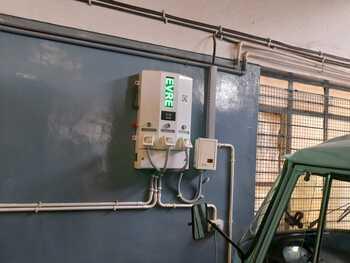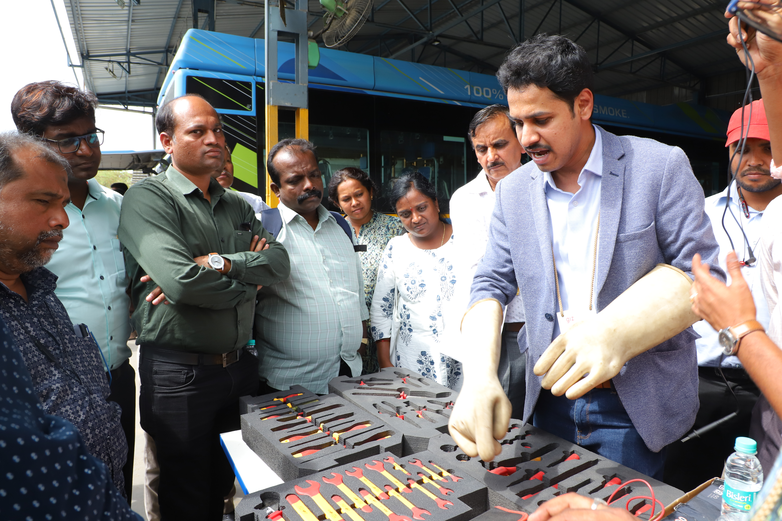Context
The Government of India is seeking to reduce its dependence on fossil fuels by implementing targeted measures in the transportation sector, particularly promoting hybrid and electric vehicles. India's National Contributions to Climate Action (Nationally Determined Contributions, NDCs) aim to reduce CO2 emissions by 33 to 35 percent across various sectors by 2030.
Transforming urban mobility to accommodate electric vehicles poses several challenges. Before introducing electric buses, city authorities must acquire the necessary data for project preparation and allocate sufficient resources to finance buses and associated infrastructure. Additionally, adjustments to power grids are necessary to meet the escalating energy demand. To make climate mitigation efforts successful, cities need to ensure that the rising demand for electricity can be met by renewable energies. Coordinating the complex network within the transport and energy sectors adds more challenges for local authorities regarding their competencies and capabilities.
Objective
The transformation to sustainable and climate-friendly e-Mobility is promoted by coupling the transport and energy sectors.


